Yoonsu Park, Ph.D.
Ewon Assistant professor of chemistry
Rm. 604, E6-6, KAIST, Daehak-ro 291, Daejeon, South Korea
E-mail: yoonsu.park_at_kaist.ac.kr, Tel: +82-42-350-2821
Experiences
Experiences
• Assistant Professor, KAIST, South Korea, 2022-to date.
• Postdoctoral Research, Princeton University, United States, 2019-2021.
Advisor: Paul J. Chirik
• Research Fellow, Institute for Basic Science (IBS), South Korea, 2019.
• Visiting Research, University of Utah, United States, 2017.
Advisor: Matthew S. Sigman
Education
• Ph.D. in Chemistry, KAIST, South Korea, 2019.
Advisor: Sukbok Chang
• B.S. in Chemistry, KAIST, South Korea, 2014.
Summa cum laude
• Exchange Student, Technical University of Munich, Germany, 2012.

Experiences
• Assistant Professor, KAIST, South Korea, 2022-to date.
• Postdoctoral Research, Princeton University, United States, 2019-2021.
Advisor: Paul J. Chirik
• Research Fellow, Institute for Basic Science (IBS), South Korea, 2019.
• Visiting Research, University of Utah, United States, 2017.
Advisor: Matthew S. Sigman
Education
• Ph.D. in Chemistry, KAIST, South Korea, 2019.
Advisor: Sukbok Chang
• B.S. in Chemistry, KAIST, South Korea, 2014.
Summa cum laude
• Exchange Student, Technical University of Munich, Germany, 2012.
Honors and Awards
• POSCO Science Fellowship, POSCO TJ Park Foundation, 2024-2025. News link.
• EWon Assistant Professorship, KAIST, 2024-2027.
• Outstanding Teaching Award, Department of Chemistry, KAIST, 2024.
• QAIST (Q-KAIST) Creative & Challenging Research Award, KAIST, 2023. News link.
• Outstanding Teaching Award, College of Natural Sciences, KAIST, 2023.
• The Reaxys Ph.D. Prize Finalist, Elsevier, Netherlands, 2019. Reaxys Link. News link.
• 2019 CAS Future Leaders Award, American Chemical Society (CAS-ACS), United States, 2019. C&EN News link.
• S-OIL Best Ph.D. Thesis Award (화학분야 대상), The Korean Academy of Science and Technology (한국과학기술한림원/한국대학총장협의회) & S-Oil, Korea, 2019. News link.
• The Best Ph.D. Thesis Award, KAIST, 2019.
• The Best Ph.D. Thesis Award, Korean Chemical Society, Korea, 2019.
• The First Poster Award, The CaRLa Winter School in Heidelberg, Germany, 2019.
• Poster Award, Korean Society of Organic Synthesis (KSOS) General Meeting, Gyeongju, Korea, 2018.
• Oral Presentation Award, Asian Core Program (ACP) Junior, Lanzhou, China, 2017.
• TCI-ACP Junior Best Oral Presentation Award, Korean Chemical Society (KCS)-Organic Chem Division, 2017.
• The Best Proposal Award, International C–H Functionalization Workshop (NSF CCHF-ITbM-IBS), 2016.
• Kwanjeong Fellowship, Kwanjeong Educational Foundation, 2014–2015.
• CHEMISTAR Award, Department of Chemistry, KAIST, 2014.
• Alumni Association Award at KAIST Commencement (Summa cum laude, 4th out of 900), KAIST, 2014.
• KCS Presidential Award, Korean Chemical Society, 2014.
• KAIST Presidential Fellowship (KPF 장학생), KAIST, 2013–2014.
• Undergraduate Research Participation (URP) Excellent Research Award, KAIST, 2014.
• Diamond Scholarship, Dow Chemical Korea, 2014.
• National Delegate, Stockholm International Youth Science Seminar (SIYSS), Swedish Federation of Young Scientists, 2013 (Invitation to 2013 Nobel Ceremony).
• The Best Award, EDISON Competition in Computational Chemistry, Korean Chemical Society, 2013.
• Honor Student, KAIST, 2012–2014.
representative Publications
[1] Park, Y.; Kim, S.; Tian, L.; Zhong, H.; Scholes, G. D.; Chirik, P. J. Visible Light Enables Catalytic Formation of Weak Chemical Bonds with Molecular Hydrogen. Nature Chem. 2021, 13, 969-976.
[2] Park, Y.†; Tian, L.†; Kim, S.; Pabst, T. P.; Kim, J.; Scholes, G. D.; Chirik, P. J. Visible Light-Driven, Iridium-Catalyzed Hydrogen Atom Transfer: Mechanistic Studies, Identification of Intermediates and Catalyst Improvements. JACS Au 2022, 2, 407-418.
[3] Park, Y.; Semproni, S. P.; Zhong, H. Chirik, P. J. Synthesis, Electronic Structure, and Reactivity of a Planar Four-Coordinate, Cobalt-Imido Complex. Angew. Chem. Int. Ed. 2021, 60, 14376-14380.
[4] Jung, H.; Schrader, M.; Kim, D.; Baik, M.-H.*; Park, Y.*; Chang, S.* Harnessing Secondary Coordination Sphere Interactions that Enable the Selective Amidation of Benzylic C−H Bonds. J. Am. Chem. Soc. 2019, 141, 15356-15366. (*Co-corresponding authors)
[5] Park, Y.; Chang, S. Asymmetric Formation of γ-Lactams via C–H Amidation Enabled by Chiral Hydrogen-Bond-Donor Catalysts. Nature Catal. 2019, 2, 219–227.
[6] Hong, S. Y.†; Park, Y.†; Hwang, Y.; Kim, Y.; Baik, M.-H.; Chang, S. Selective Formation of γ-Lactams via C–H Amidation Enabled by Tailored Iridium Catalysts. Science 2018, 359, 1016–1021. (†Co-first authors)
[7] Kim, Y.†; Park, Y.†; Chang, S. Delineating Physical Organic Parameters in Site-Selective C–H Functionalization of Indoles, ACS Cent. Sci. 2018, 4, 768–775. (†Co-first authors)
[8] Park, Y.; Niemeyer, Z. L.; Yu, J.-Q.; Sigman, M. S. Quantifying Structural Effects of Amino Acid Ligands in Pd(II)-Catalyzed Enantioselective C–H Functionalization Reactions. Organometallics 2018, 37, 203–210.
[9] Park, Y.; Kim, Y.; Chang, S. Transition Metal-Catalyzed C–H Amination: Scope, Mechanism and Applications. Chem. Rev. 2017, 117, 9247–9301.
[10] Park, Y.; Heo, J.; Baik, M.-H.; Chang, S. Why is the Ir(III)-Mediated Amido Transfer So Much Faster than the Rh(III)-Mediated Reaction? A Combined Experimental and Computational Study. J. Am. Chem. Soc. 2016, 138, 14020-14029.
[11] Park, Y.; Park, K. T.; Kim, J. G; Chang S. Mechanistic Studies on the Rh(III)-Mediated Amido Transfer Process Leading to Robust C–H Amination with a New Type of Amidating Reagent. J. Am. Chem. Soc. 2015, 137, 4534–4542.

© The Park Laboratory, 2023.
Address: Rm. 604, E6-6, KAIST, 291 Daehak-ro, Yuseong-gu, Daejeon 34141, Republic of Korea
© The Park Laboratory, 2023.
Address: Rm. 604, E6-6, KAIST, 291 Daehak-ro, Yuseong-gu, Daejeon 34141, Republic of Korea


